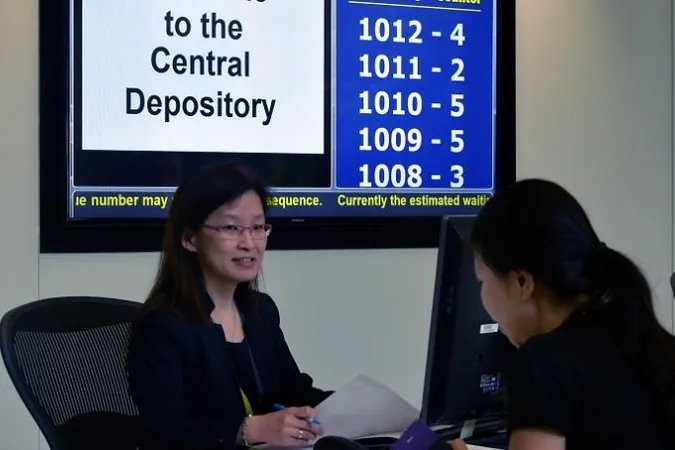
The Crisis of the Traditional Agency Model: What Brands and Creatives Need Now
2024-11-21
Author: Jia
It’s official: “The traditional agency model is broken.” Every marketer has either heard this saying or experienced the frustrations associated with it firsthand. In a landscape where creativity is stifled and brands struggle to keep pace with market demands, it’s crucial to ask the pressing question: Are we truly delivering what brands need in this rapidly evolving environment?
The Core Problem
For years, we’ve seen creative specialists shoehorned into generalist roles, which can lead to disastrous outcomes. This situation not only limits the individual talents of creative professionals but can also result in a subpar client experience. Here’s how it breaks down:
1. Stifled Creativity
When talents are forced to juggle multiple roles, their creativity takes a hit. This disparate role assignment dilutes their focus, leading to uninspiring work. Although many creatives are still finding ways to flourish in agencies, a significant number feel overlooked and stifled under layers of bureaucracy and feedback. The ongoing frustration can push valuable talents out of the system, perpetuating a cycle of mediocrity.
2. Overburdened Teams
Traditional agencies often stretch their teams too thin across a wide array of clients while failing to provide the depth of service that each brand deserves. This leads to poorer quality work and increases client dissatisfaction.
Emerging Challenges and Alternatives
If traditional agencies are failing to meet brands' needs, who is stepping in to fill the gap? Disruptive entrants like consulting firms are redefining marketing strategies through their data-driven approaches. They tap into comprehensive market research and customer insights to craft strategies that resonate with business leaders. However, this engagement typically comes with high overhead costs and conflicting interests, especially when these firms acquire creative agencies, leading to a tug-of-war between data-driven strategies and creative expression.
The In-Housing Revolution
The potential for a better alternative has begun to emerge through in-housing—where brands integrate skilled teams directly into their operations. According to the Association of National Advertisers, a staggering 82% of brands now utilize in-house agencies, particularly in the APAC region where this trend continues to grow.
Brands adopting in-house strategies have witnessed significant benefits, from enhanced control over marketing efforts to substantial cost savings. By aligning a dedicated team around a brand, companies can streamline workflows, ensuring consistency and faster output.
Strategies for Successful In-Housing
To effectively build an in-house team that meets the specific needs of their brand, companies should consider these three actionable strategies:
1. Assess Your Needs and Resources
Understand what your unique marketing goals are. Create a team structured around these objectives and ensure that every member is measured by the same key performance indicators (KPIs). Identify gaps in expertise and seek out specific skill sets either through internal development or external partnerships.
2. Cultivate Brand Advocates
Hiring individuals who are passionate about the brand fosters a deeper understanding of its mission and values. When team members are genuinely invested, the creative outcome is not just impactful but also authentic, aligning perfectly with consumer expectations.
3. Implement Quality Control Measures
Whether by embedding certified leads in-house or establishing quality assurance mechanisms, maintaining a high standard of output is crucial. This can ensure that even outsourced teams uphold brand integrity and meet agreed-upon quality metrics.
It's vital to note that simply opting for in-housing to cut costs can backfire if not executed properly. By strategically building a competent in-house team, brands can optimize budgets and reinvest the savings in creative expertise that propels marketing effectiveness.
Combining Strengths for Maximum Impact
While in-housing presents a robust solution, brands shouldn't shy away from leveraging the unique strengths of external creative agencies. This hybrid approach can inspire groundbreaking ideas and fuel creative excellence while keeping budgets manageable. By engaging with external agencies for their areas of expertise, brands can strike a perfect balance that drives stellar marketing outcomes.
As the landscape continues to evolve rapidly, it’s essential for marketers to think beyond traditional frameworks. By embracing flexible in-housing models, teams can fully harness their creative potential while delivering exceptional results.
In the age of tailored experiences, don’t overlook hidden gems dispersed globally—like a brilliant animator in Jakarta or a savvy social strategist in India—who can align perfectly with your campaign objectives. Adaptability is the key, and the move towards a more bespoke operational model could revolutionize your brand’s marketing effectiveness. The future looks promising if you're prepared to evolve!




 Brasil (PT)
Brasil (PT)
 Canada (EN)
Canada (EN)
 Chile (ES)
Chile (ES)
 España (ES)
España (ES)
 France (FR)
France (FR)
 Hong Kong (EN)
Hong Kong (EN)
 Italia (IT)
Italia (IT)
 日本 (JA)
日本 (JA)
 Magyarország (HU)
Magyarország (HU)
 Norge (NO)
Norge (NO)
 Polska (PL)
Polska (PL)
 Schweiz (DE)
Schweiz (DE)
 Singapore (EN)
Singapore (EN)
 Sverige (SV)
Sverige (SV)
 Suomi (FI)
Suomi (FI)
 Türkiye (TR)
Türkiye (TR)